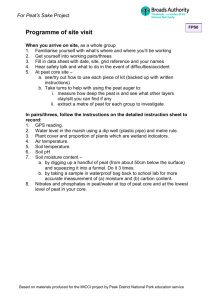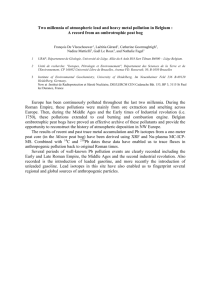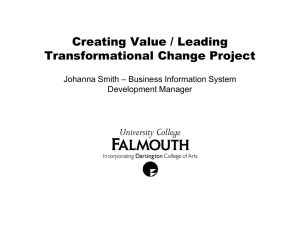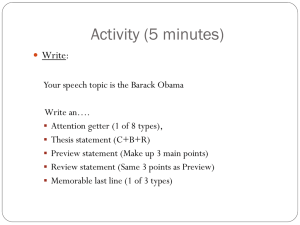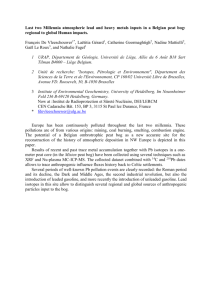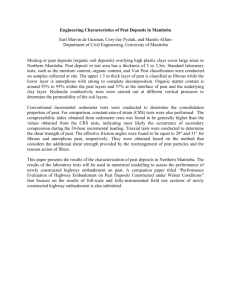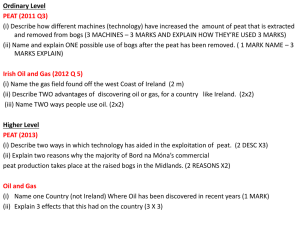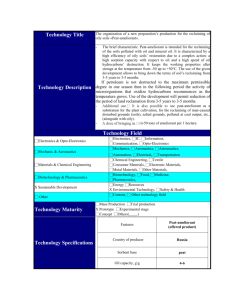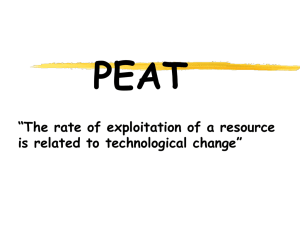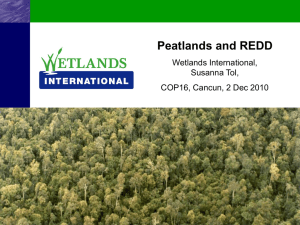2014 Sustainability Communication
advertisement
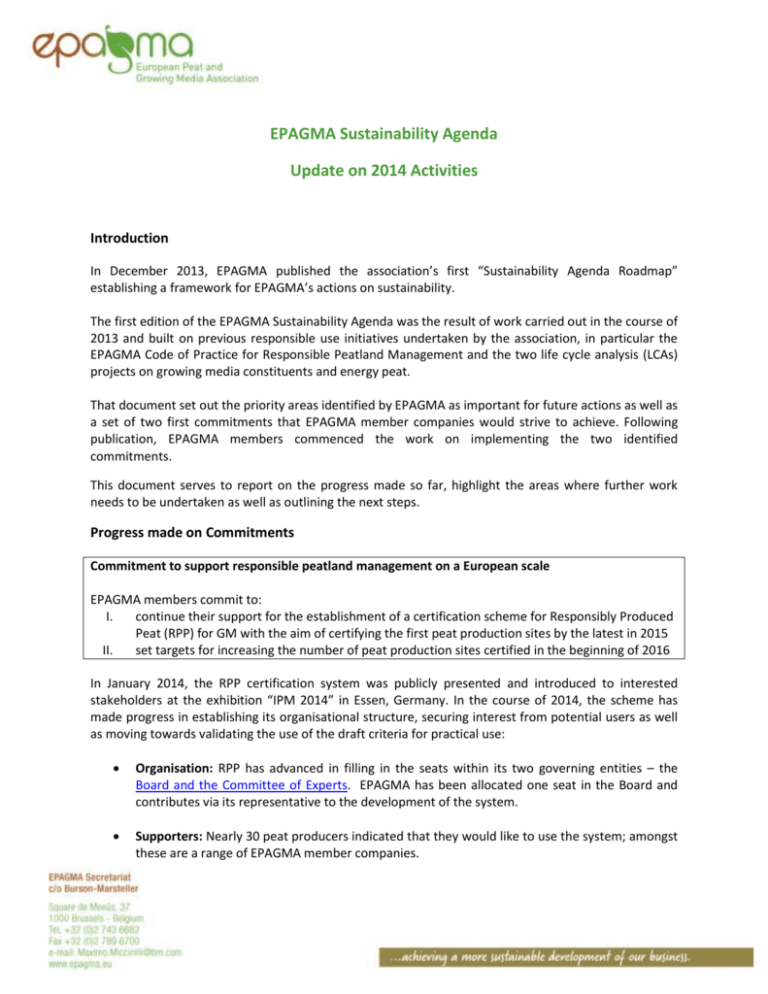
EPAGMA Sustainability Agenda Update on 2014 Activities Introduction In December 2013, EPAGMA published the association’s first “Sustainability Agenda Roadmap” establishing a framework for EPAGMA’s actions on sustainability. The first edition of the EPAGMA Sustainability Agenda was the result of work carried out in the course of 2013 and built on previous responsible use initiatives undertaken by the association, in particular the EPAGMA Code of Practice for Responsible Peatland Management and the two life cycle analysis (LCAs) projects on growing media constituents and energy peat. That document set out the priority areas identified by EPAGMA as important for future actions as well as a set of two first commitments that EPAGMA member companies would strive to achieve. Following publication, EPAGMA members commenced the work on implementing the two identified commitments. This document serves to report on the progress made so far, highlight the areas where further work needs to be undertaken as well as outlining the next steps. Progress made on Commitments Commitment to support responsible peatland management on a European scale EPAGMA members commit to: I. continue their support for the establishment of a certification scheme for Responsibly Produced Peat (RPP) for GM with the aim of certifying the first peat production sites by the latest in 2015 II. set targets for increasing the number of peat production sites certified in the beginning of 2016 In January 2014, the RPP certification system was publicly presented and introduced to interested stakeholders at the exhibition “IPM 2014” in Essen, Germany. In the course of 2014, the scheme has made progress in establishing its organisational structure, securing interest from potential users as well as moving towards validating the use of the draft criteria for practical use: Organisation: RPP has advanced in filling in the seats within its two governing entities – the Board and the Committee of Experts. EPAGMA has been allocated one seat in the Board and contributes via its representative to the development of the system. Supporters: Nearly 30 peat producers indicated that they would like to use the system; amongst these are a range of EPAGMA member companies. Field trials: Throughout 2014, the certification system has been and continues to be tested on 8 test sites in the field. The test sites are in Germany, Lithuania, Latvia, Estonia, Finland, Sweden, Ireland and the UK. EPAGMA member companies are involved in undertaking these tests, which aim at ensuring the workability of the system in practice. It is expected that the first certificates will be issued in June 2015. Although challenging, based on the current schedule, EPAGMA hopes to fulfill its first commitment in time with the target set and will continue to support the scheme in achieving this goal, via its contribution to the Board as well as via encouraging its member companies to continue their efforts in the field trials and to apply for the scheme. In a broader international context, EPAGMA strongly supports cooperation between the UK government Department for Environment, Food and Rural Affairs (DEFRA) initiative for the development of a system for sustainable growing media constituents and the RPP Board. EPAGMA would like to see a continued cooperation that could lead to a common European scheme or mutual recognition between the two systems in the future. EPAGMA has and will continue to encourage and facilitate an exchange of view towards this ultimate goal. Remaining challenges identified by EPAGMA until end 2015 are the complete set up of the organizational structure of the RPP entities as well as ensuring that the scheme will be taken up by a majority of industry players. EPAGMA will continue to discuss internally how to move this forward and welcomes further input from stakeholders on the future of RPP. Commitment to assess transparency initiatives EPAGMA members commit to investigate in 2014 options for increasing transparency of energy peat extraction. In the sustainability agenda, EPAGMA decided to commit to an open dialogue on peat extraction. The EPAGMA energy members committed to exploring transparency areas and projects, to assess EU level activities in 2014 and report about the outcomes of this exercise in 2015. Following this commitment, a Transparency Working Group was formed in December 2013 which led to three brainstorm meetings since December 2013. A draft EPAGMA Energy Peat Transparency Policy (2014-2016) was informally presented during the first EPAGMA Energy Peat site visit in Helsinki (23 -25 July). In short, the objective of the EPAGMA Energy Peat Transparency Policy (2014-2016) communication is to define guiding principles and set three specific commitments that can be applied by the EPAGMA energy members and monitored and implemented by the end of 2016. The guiding principles will form the basis for further commitments in the coming years. As immediate next steps, EPAGMA will finalise the communication and publicly report on the progress of the implementation in 2015. The transparency communication is available here Outlook In 2015, EPAGMA members will start a new review process to understand whether and which further commitments can be added to the sustainability agenda, based on the priority areas identified in the sustainability agenda: transport, job stability/security and security of raw material and energy supply. Comments received on the agenda and in particular the priority areas throughout 2014 will serve to inform this process and relevant stakeholders will be invited by the association to provide input. Following the certification of the first peat production site, EPAGMA will start its internal process for setting targets for increasing the number of peat production site. Feedback The roadmap is a living document, which will go through continuous updates in the future. We believe this is only the first step towards a more sustainable development of our business. In this regard, we welcome your comments and further suggestions on our roadmap and/or this update. Please direct any comments to Julia Riss (julia.riss@bm.com), EPAGMA Secretariat at Burson-Marsteller which acts as the Secretariat of the Association, located in Brussels.

